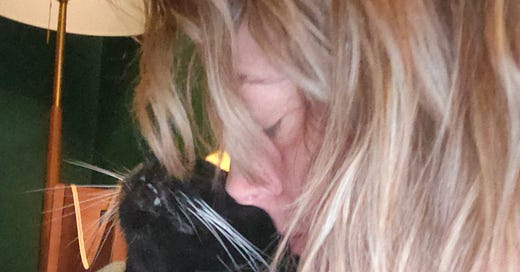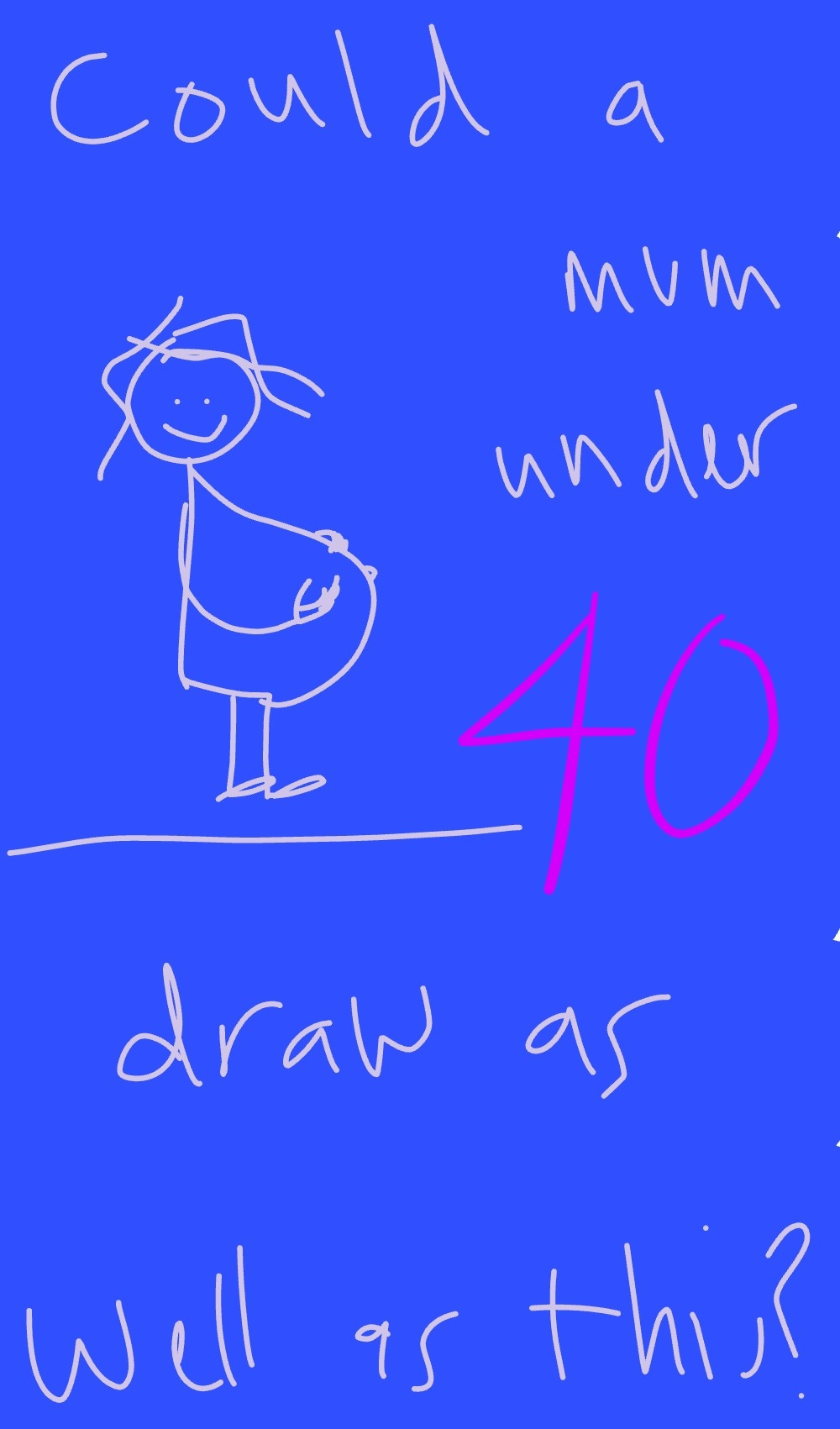What If Your Weirdest Work Is Your Best Work?
Imagining the possibilities of 'unmasking' creatively.
At first, post-diagnosis, I was sure I would have to leave academia.
Students looking at me, the effort it took to read the room, it all made me sweat, and shallow breathe and it seemed there was just nothing I could do about it.
But the mortgage needed paying, and we had a puppy to feed now - and so instead of running for the hills I had no choice but experiment with unmasking.
There was not much to lose as it seemed I would likely have to leave the job anyway.
I started to wear (even more) comfy clothes, without worrying about being mistaken for a student (less of an issue with every passing year you'll be glad to know!) and I worked on being compassionate to myself for all the mistakes that can occur in the process of attempting to deliver undergraduate modules when you have almost no working memory.
I laughed at my PowerPoint errors or my inability to recall things or my occasional tendency to forget what I'm talking about midpoint.
I brought Brene Brown’s teachings about the power of vulnerability into the centre of my teaching, and modelled it in class by referring to my neurodivergence and the executive functioning that are a part of it.
Students respond by relaxing in my seminars, hiding less of themselves and taking more risks in their writing. I’ve made this gentleness a part of my pedagogy - it aligns with Carl Rogers’ humanistic teaching - and this student-centred approach seems to work for creative writers.
Through fiction and non-fiction workshops, I lead my students to share more of their authentic selves, discover the power of vulnerability, and in doing so, we unmask together.
I’m realising that creativity itself is a kind of unmasking, whether we are neurodivergent or not. And that many of us can only manage with the performance/masking that society demands, because we have this magical outlet that makes it bearable. Creativity allows us to release a little of the pressure.
What if creativity can be the outlet in lieu of alcohol! Drawing or crafting and socialising, rather than drinking and socialising. Nature, exercise or walking rather than the pub.
Comically, I realise that what I am describing here is HOBBIES.
You know those things that you talk about in dating profiles and job interviews?
Something that newly sober ex-heavy drinkers lament the loss of, once alcohol takes hold.
And something newly sober and newly diagnosed people alike begin to look for as part of getting to know their real selves (whatever that is).
Creativity as unmasking
Writing remains a crucial part of my unmasking process. I still find it easier to share the truth in writing online than in conversation. And in my blogs I don’t obsess and perfect to the extent I do in my novels. I experiment and think on the page, and whenever I have the time (not much since returned to academia!) I include energetic, impulsive drawings that are a pleasure to do.
I draw quickly and instinctively, on my phone. And I don’t clean these drawings up much. They’re full of movement and feeling - a wild, amateurish energy I edit out of my fiction. The ‘voice’ is all right there, in its ugly, awkward, cringey nature, and I love it, in a way I struggle to love my writing (and myself).
I’ve never gotten good enough at drawing to mask anything. Some of my drawings come out wonderfully expressive.
And some are objectively terrible, but they make me laugh so I publish them anyway.
We all know that feeling where a friend or mentee or student pours themself into their work and it just comes to life, sings, transcends, all the stuff we say when art works.
YES. I tell my students, be weird, be different, be gross, put all the stuff in there that you can’t and don’t want to say (unless it’s hate speech) and people will love you for it.
THAT is what the best art does.
That is what the real artists do.
What would it mean to unmask in your creative work?
It’s been a while since I finished a novel.
Partly because novels are flipping hard to write.
And I have almost no working memory so forget what I have worked out about characters and plot. Go round in circles, trying to be original.
But also, because somewhere along the way I started trying too hard to finish drafts to a standard that is beyond me. As Amanda Tink pointed out in a wonderful talk I went to at the recent Open University Creativity and Neurodiversity confernce, ‘disabled artists are pressured to work in a non-disabled way.’
I am realising that this instinct is a kind of literary masking, and so what if the novels I abandoned aren’t broken, but simply weird in the same ways I’ve spent a lifetime hiding in myself?
What if my fiction can unmask too?
Masking is not a quirky neurodivergent trait.
It’s survival. Like being closeted.
You don’t mask because you want to. You mask because there’s no known, safe alternative.
As
Price puts it in Unmasking Autism: the power of embracing our hidden neurodiversity “We only get the opportunity to take our masks off when we realise other ways of being exist.”I don’t have an answer yet. But ‘unmasking’ has saved me socially and professionally - what if creative unmasking is the next frontier?
📚 Chelsey Flood is the author of award-winning novels Infinite Sky and Nightwanderers, and a senior lecturer in creative writing at UWE. She is currently working on a book for Jessica Kingsley Publishers about the connection between undiagnosed neurodiversity and addiction + her first domestic noir. 📚







So much resonance... I want to instantly send this to all my autistic friends in creative and teaching roles.
Nice post. Thank you very much! I'm inspired to be a little more daring, unmasked in my own writing now. (Speech-to-text error fixed.)